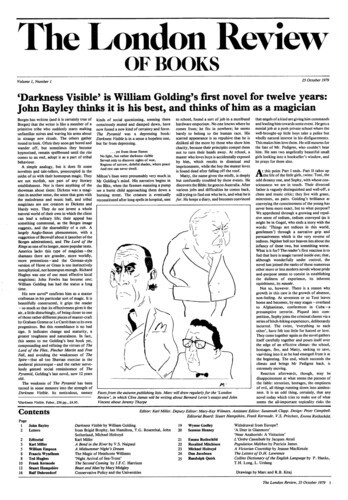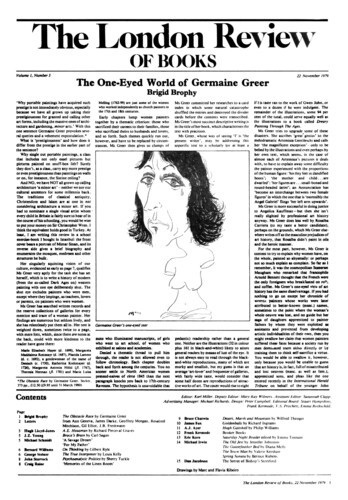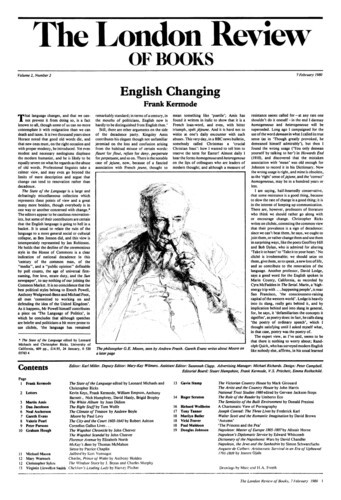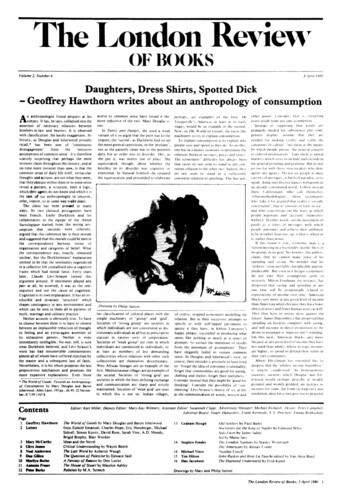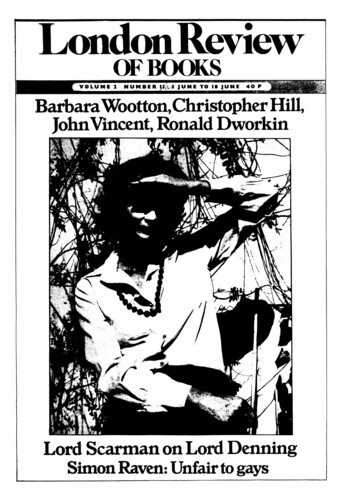Lawrence and the Mince-Pies
Dan Jacobson, 25 October 1979
In 1932, Aldous Huxley published The Collected Letters of D.H. Lawrence, a large brown volume, printed in a curiously elaborate type, which has no doubt become something of a special item in booksellers’ catalogues. It contained 889 pages. Exactly 30 years later Harry T. Moore edited The Collected Letters of D.H. Lawrence. This consisted of two volumes totalling 1,307 pages. Both before and subsequently several smaller, independent collections of letters appeared; one, for example, contained the correspondence Lawrence had with Bertrand Russell during the First World War, another, entitled Lawrence in Love, presented the letters he wrote during his abortive engagement to Louie Burrows, one of the many girls who seem to have fallen irrevocably in love with him when he was an unknown youth. Now, it seems, those of us who live long enough will eventually be able to peruse The Letters of D.H. Lawrence in no less than eight volumes, of which the one under review is the first. It contains 579 pages. Since the last volume of the series will, we are told, be an index volume, and will presumably be shorter than the others, one can calculate that when the publication of the series is concluded, it will consist of approximately 4,500 pages.
